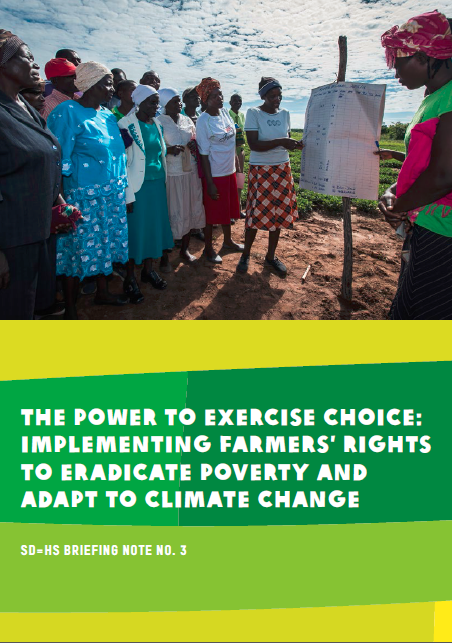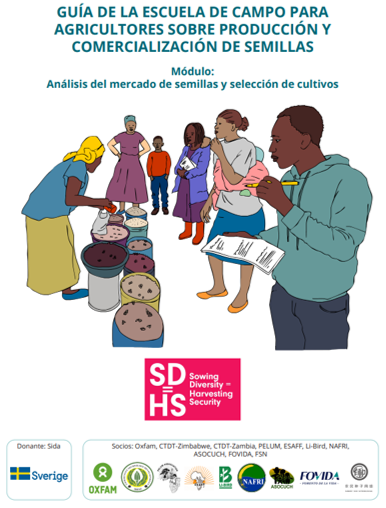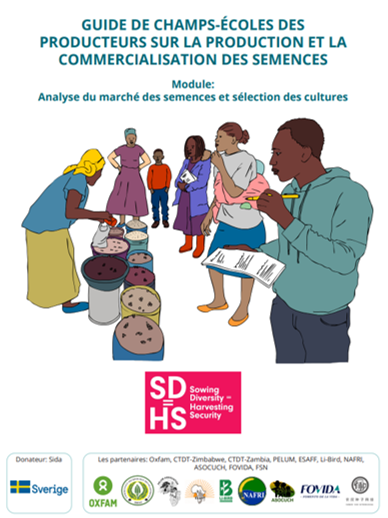The SD=HS program aims to realize Farmers’ Rights by empowering indigenous peoples and smallholder farmers to uphold their role in contributing to food security and strengthening their adaptive capacities. This report describes the main tools and achievements so far. Farmer field schools are one key tool. They facilitate farmers in accessing, adopting and creating a better-adapted portfolio of crops and varieties. Other key tools include community seed banks and various participatory plant breeding approaches to maintain, enhance and create crop diversity. The report also presents the first results of the farmer seed enterprise Champion Farmer Seeds, established by the program in Zimbabwe.
There are several options and conditions for scaling up community support in genetic diversity management. This report highlights the importance of cooperation between local and indigenous communities and public-sector institutions for the success and sustainability of such endeavors. It identifies the necessary conditions for dramatically increasing the number of FFS.
From the program’s various lessons and achievements, the report reflects on the policy implications for countries wishing to create a more enabling environment for farmers to maintain their contributions to conserving and improving plant genetic resources for food and agriculture, and to help farmers in improving their livelihoods and exercising their Farmers’ Rights.









